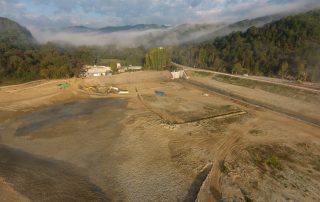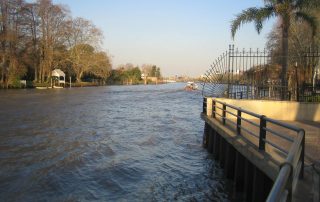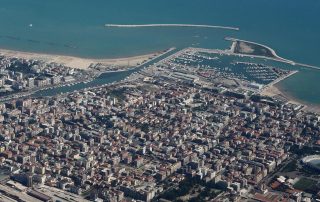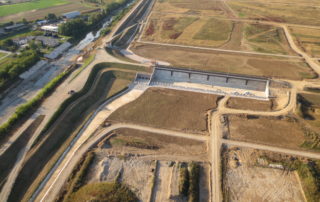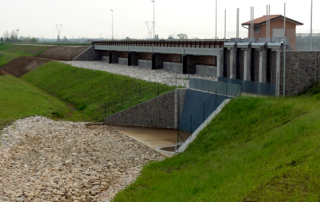 “Disaster risk reduction is the concept and practice of reducing disaster risks through systematic efforts to analyse and reduce the causal factors of disasters. Reducing exposure to hazards, lessening vulnerability of people and property, wise management of land and the environment, and improving preparedness and early warning for adverse events are all examples of disaster risk reduction.”
“Disaster risk reduction is the concept and practice of reducing disaster risks through systematic efforts to analyse and reduce the causal factors of disasters. Reducing exposure to hazards, lessening vulnerability of people and property, wise management of land and the environment, and improving preparedness and early warning for adverse events are all examples of disaster risk reduction.”
Source: United Nations Office for Disaster Risk reduction
We offer a range of services for emergency planning and management, and implementing strategies to build resilience to hazards.
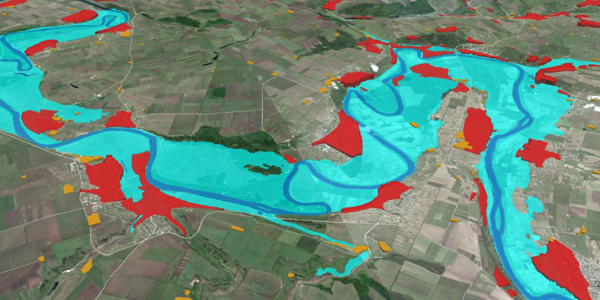
An European Investment Bank Project:
Management and technical assistance support to Moldova flood protection
Our expertise
FLOOD RISK MANAGEMENT
- Flood hazard and risk
assessment and CBA - Sustainable planning and
flood prevention strategies - Action plans and
engineering works - Hydraulic modelling
- Early Warning Systems
development
WATER SOURCES PROTECTION
- Holistic approach to water
sources management and protection - Water quality and quantity
assessment for surface
and groundwater - Water balance analysis for
current and future scenarios - Hydrological modelling
RIVER, COASTAL AND ESTUARINE MORPHODYNAMICS
- Morphological analysis
- Sediment transport modelling
- Sustainable and integrated
sediment management
strategies - River geomorphology
analysis - Protection and navigation
engineering solutions
CLIMATE CHANGE
- Climate change scenarios
evaluation - Water security impact
assessment - Sustainable and resilient
CC measures - Assistance in developing
Green Climate Fund Project Proposals (GCF)
Have a look at our latter projects
Reducing the hydraulic risk in Abruzzo Region, Italy
The project is aimed at reducing the hydraulic risk in the city of Carsoli, located in Abruzzo Region in central Italy. Inside the city centre, the Vallemura and the Turano rivers were channelled into rectangular concrete riverbeds, with buildings placed on both sides, which leaves little room for upgrading solutions. Downtown, the confluence between the two watercourses is a [...]
Drainage Plan of the Lujan river basin, Argentina
Latin America is the second-most urbanized region in the planet with 8 out of 10 people living in cities. Over the last 10 years there has been an increase in the frequency, magnitude and duration of urban flash flooding incidences in Lujan river basin (2,856 km² with 18 cities for a total of 2,795,648 inhabitants) during or after occurrence [...]
Hydraulic and river/coastal morphodynamic studies in Pescara, Italy
Pescara is one of the biggest coastal cities in Italy, at particular risk from flooding given its population density, coastal nature, high proportion of unplanned settlements, and environmental degradation. The urban drainage for storm water is inadequate. The Italian government is currently financing transformative flood control investments in Pescara City’ Pescara River, a densely populated and environmentally degraded river [...]
Protection of Vicenza city against floods: design and construction of a flood retention basin
On 1 November 2010, an extreme rainfall event hit the Veneto region, and in particular the Cities of Verona, Vicenza and Padua. After that event, the Veneto Region, entrusted BETA Studio with the final design of a retention basin along the Timonchio river. This is the most significant intervention of all the measures to reduce flood risk and improve [...]
Management and technical assistance support to Moldova flood protection
The main objective of the project was to develop a countrywide Flood Management Master Plan for the Republic of Moldova. This Master Plan provides a phased investment programme of flood management measures for rivers in Moldova covering both a 20-year period and a Short Term Investment Plan covering the next seven years. The Master Plan was developed in the [...]


